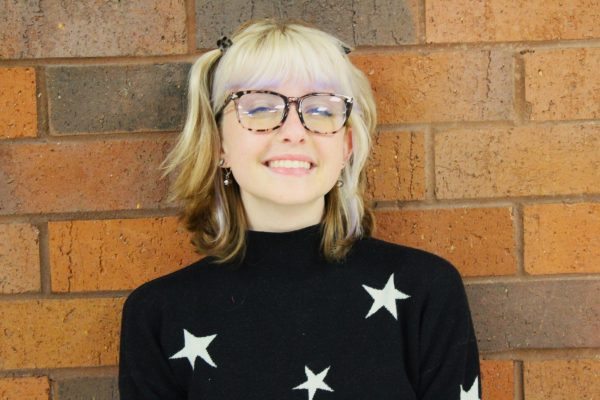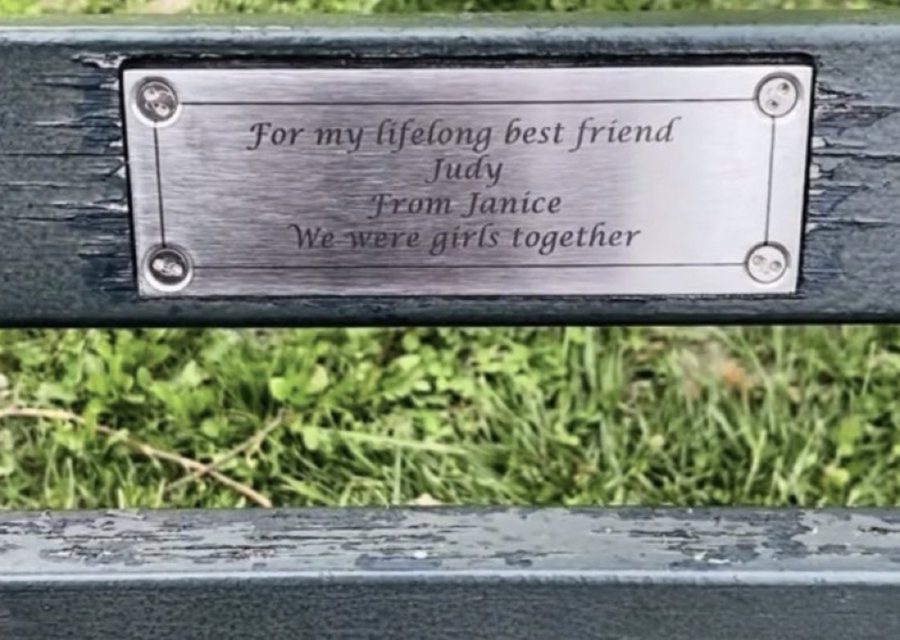We were girls together
Analyzing the strength in women’s relationships
I came across a picture of a bench sometime this year, it was a memorial for a woman named Judy, from her friend Janice. The bench read, “To my lifelong friend … We were girls together.”
This sentence took a very niche section of the internet by storm; there was crying, screaming, throwing of phones and computers, art made, art destroyed, etc.
It struck a chord in me about the importance of the female relationships I’ve made in the past year, and how the idea of “being girls together” was so emotional.
I started college without many friends. I had a couple from my home, but not very many significant relationships that I felt I was leaving behind.
My goal was to meet like-minded people, and I swiftly found myself surrounded by some of the most interesting, creative and loving women I’ve ever encountered.
My connection to these people is intense, intimate and strong. They’ve seen my good days, bad days and every other day in between. What about them makes our bond so different from anything I’ve experienced before?
Is it the fact that we’re in college, or the fact that girlhood is a strong, impenetrable bond and I’m just slow to that realization?
I watched girls post pictures of their friends during Women’s History Month month – groups of hundreds come together to protest against injustices, and the strong support I watched my mother’s friends give her in times of need.
What I really wanted was to know more about the bond between women that feels so magical, almost spiritual to me.
Female friendships are unique, that’s just a fact. A journal of Clinical Oncology stated that women with breast cancer are four times more likely to die from it if they don’t have many friends.
According to a study done at UCLA, female friendships create more oxytocin, the bonding hormone. We are able to feel safe with each other, and in turn, can actually make our brains healthier.
Female friendships can at times be hard as well, as much as we wish it would only be the nurturing — late-night talks and falling asleep on each other after long days — we bicker and fight and fall apart.
The thing with the connectivity of women is that even if we don’t like another girl, we will protect her if necessary. I think that’s the bottom line. We all get it.
Regardless of any disdain or jealousy or any other contempt we might feel towards other women in our lives, we understand what it feels like to live in a world that was built for us to fail.
All this information was pouring out of my computer, and that’s without even mentioning the insane phenomena known as menstrual syncing, or “The McClintock Effect”.
I dove into the research behind this phrase “we were girls together.” I came up with Toni Morrison, more specifically Danika Savonick’s essay.
Her writing spoke about Morrison’s ability to convey womanhood and relationships, mostly through the lens of “Sula,” a book published in 1973.
It seemed like no matter where I turned, the information backing up the intense relationships between women was astounding.
So, back to the bench. I didn’t get a lot of opportunities to be “girls” in that way with my friends in my hometown. But I can feel it now, with my friends here, and I don’t know how I’ve ever lived without them.
So, as a sappy love letter to the women in my life — thank you for shaping me, loving me and caring for me. Most of all, thank you for allowing me to grow and change and love me because of it.
Delia Brandel can be reached at [email protected].

Delia is a second-year illustration student, pursuing a career in children's book illustration and animation. This is her third semester on The Spectator. Delia is particularly fond of books, art, her cat Applesauce, music, tea, baby clothes, the 2019 version of “Little Women” and animated movies.












Maureen Lauterbach • Oct 17, 2023 at 12:32 pm
This is so packed with gut searing truths. Women bond in ways men do not comprehend. And with those women we have known since childhood the bond is all the more enduring. I will share this with all the women I love. Thank you.
Chenoa Cerrada • Jul 1, 2023 at 2:16 pm
beautiful!!
Fadaria • May 16, 2024 at 10:46 pm
Awww